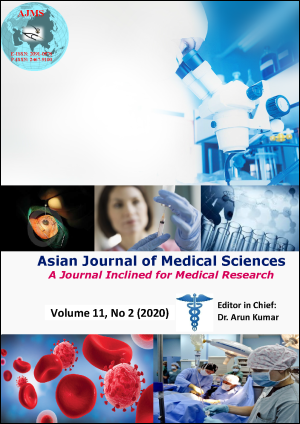Phytotherapeutic antioxidants
Keywords:
Antioxidants, Plants, Free Radicals, DiseasesAbstract
Plants have always been an integrated part of human life, whether we discuss about providing food or we about their medicinal value. Ethnomedicines have led to the discovery of many valuable drugs against various diseases. It has been postulated that most of the disease are related to immune system which is affected by imbalance balance between antioxidants and prooxidants or free radicals. Free radicals are the chemical entities capable of independent existence that contain one/more unpaired electrons and can be balanced by antioxidants. Antioxidants maintain the integrity and function of membrane lipids, cellular proteins, and nucleic acids and the control of signal transduction of gene expression in immune cells. For this reason, the immune cells are particularly sensitive to changes in their antioxidant status. Whenever there is imbalance between prooxidant and antioxidants they can lead to many diseases and even ameliorate the severity of disease like Alzheimer, cardiovascular disorder, cancer etc. There are evidences showing usage of plants as a potent source of antioxidants has provided a lot of support in combating various diseases, without any side effect. Various Bioflavonoids, Carotenoids, Hydroxycinnamates etc helps in scavenging the free radicals and thus proved to be immunostimulant. There are various mechanisms through which these Phyto antioxidants assisted against various disease. The present review is an attempt showing the relationship of free radicals with various diseases and immune system and the role of Phyto antioxidants against various health related conditions.
Downloads
Downloads
Published
How to Cite
Issue
Section
License
Authors who publish with this journal agree to the following terms:
- The journal holds copyright and publishes the work under a Creative Commons CC-BY-NC license that permits use, distribution and reprduction in any medium, provided the original work is properly cited and is not used for commercial purposes. The journal should be recognised as the original publisher of this work.
- Authors are able to enter into separate, additional contractual arrangements for the non-exclusive distribution of the journal's published version of the work (e.g., post it to an institutional repository or publish it in a book), with an acknowledgement of its initial publication in this journal.
- Authors are permitted and encouraged to post their work online (e.g., in institutional repositories or on their website) prior to and during the submission process, as it can lead to productive exchanges, as well as earlier and greater citation of published work (See The Effect of Open Access).




